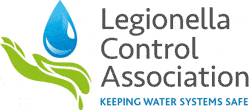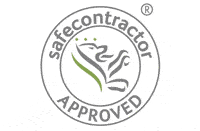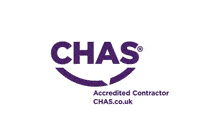Legionella Testing and Sampling in London
In London, conducting a Legionella risk assessment for your business premises is not just a legal requirement, it’s a crucial step to protect public health. This assessment involves identifying potential breeding grounds for Legionella bacteria in your water systems, which helps prevent Legionnaires’ disease (a severe form of pneumonia).
Such risk assessments also ensure you comply with key legislation and guidelines. In the UK, these include the HSE’s ACOP L8 and HSG274 guidance, the British Standard BS 8580-1:2019, and for healthcare premises, the NHS HTM 04-01. Following these standards isn’t just about avoiding legal penalties—it’s essential for maintaining safe water systems and preventing outbreaks.
London’s mix of historic and modern buildings poses unique challenges for water safety. Older plumbing systems, in particular, can harbor conditions that allow Legionella to thrive if not properly managed. Regular Legionella risk assessments address these challenges, ensuring that even in a bustling city like London, your water systems remain safe, compliant, and well-maintained.
Protecting your building’s water systems in London starts with a Legionella risk assessment. This assessment helps prevent the spread of Legionnaires’ disease, a serious lung infection caused by Legionella bacteria. It’s not just a legal obligation—it’s a vital step to protect staff, customers, and visitors.
At Acquiesce Environmental Compliance Ltd, we help businesses across London stay safe and compliant. Our assessments follow national guidance, including ACOP L8, HSG274, BS8580-1:2019, and HTM 04-01 for healthcare premises.
We also offer Legionella testing and guidance on meeting Legionella testing requirements if your water system needs routine monitoring or sample analysis.
Why Are Legionella Risk Assessments Important?
Legionella bacteria thrive in warm, stagnant water. They’re harmless in nature, but in artificial systems—like water tanks, showers, and cooling towers—they can grow quickly. If inhaled through contaminated droplets, they may cause serious illness.
London’s mix of modern and historical buildings presents a unique risk. Aging pipework, unused outlets, and complex systems make risks of legionnaires disease high, especially where water systems serve the public, vulnerable individuals, or large groups of people.
Regular assessments and testing ensure safety, help meet compliance duties, and avoid legal consequences or business interruption.
What Is a Legionella Risk Assessment?
A risk assessment involves a thorough inspection of your water systems. Our assessors look at all elements of your domestic hot & cold water systems including mains supplies, cold water storage tanks, hot water calorifiers & heaters, showers, taps, valves & pipework and any place where bacteria could form. We check for temperature control, dead legs, biofilm, poor flow, areas of infrequent use, contamination and more.
If your site is higher risk, we can out Legionella sampling & analysis. This involves collecting water samples and sending them to a UKAS-accredited lab to check for contamination.
We’ll also review your management practices in detail, and provide the correct recommendations to ensure that the management of legionella for your business is where it should be to suit the legislation.
Our 4-Step Legionella Assessment Process
Step 1: Consultation
We start gathering information about your site. This helps us tailor the assessment to the size, layout, and systems involved.
Step 2: Site Survey
Our assessors visit your premises to undertake the assessment. This involves assessing your water system to identify risks, as well as any management programme you have in relation to legionella control, such as legionella logbooks, monitoring & inspection records, training records and so forth. If you don’t have any of these in place, don’t worry, we will ensure we make all of the necessary recommendation to ensure you are compliant.
Step 3: Testing & Reporting
If needed, we can take water samples for Legionella testing. All samples are tested in a UKAS-accredited lab. We then provide a clear, easy-to-follow report with all findings and recommendations.
Step 4: Control Plan
Based on the results, we’ll help you implement control measures. These could include temperature monitoring, cleaning & descaling of assets such as showers, flushing of infrequently used outlets, periodic inspection of hot & cold water storage systems and many more which all suits the HSG274 guidance.
If Legionella is found, we act quickly. Our team will guide you through remedial action and help you return to a safe, compliant state as fast as possible.
The Importance of Compliance
Compliance isn’t just a tick-box exercise. It’s a legal and moral duty to keep your people safe. In London, where buildings and usage vary widely, water systems must meet high safety standards.
If your control measures fail to control the growth of Legionella, and someone is exposed to this you may face serious consequences—ranging from fines and enforcement action to reputational damage. Routine assessments and, where necessary, Legionella testing, are part of demonstrating compliance under UK health and safety law.
We help you meet your legal duties under the Health and Safety at Work Act, the Control of Substances Hazardous to Health Regulations (COSHH), and ACOP L8 guidance. We also help you understand and meet your requirements based on your system type and risk level.
Why Choose Acquiesce?
- Specialist knowledge: We specialise in water hygiene and Legionella control. Our assessors are trained, experienced, and keep up to date with changing standards.
- London experts: We understand the city’s infrastructure. Whether you manage a new office block or a heritage site, we tailor our service accordingly.
- End-to-end support: From initial risk assessment to routine Legionella testing, cleaning, and plumbing works, training & consultancy, we provide everything in one place.
- Trusted by many: Our clients include schools, landlords, care homes, offices, gyms, factories, retail sites, and any building which has a hot & cold water system which can provide a reasonably foreseeable risk of legionella bacteria growing in the system.
Frequently Asked Questions
How often should I do a Legionella risk assessment?
The HSE recommends reviewing your assessment at least every 2 years. You should also reassess if you make changes to your building or water system, or if you detect signs of failure in your current controls.
What is the cost of a legionella risk assessment in London?
To provide an accurate quotation, we require information about the size of the building(s), details of the water systems, and specifics regarding building usage. For a complimentary quotation, please contact us today!
Do I need Legionella testing in London?
It depends on your system. Buildings with cooling towers, spa pools, or healthcare facilities often have strict Legionella testing requirements. Testing is also needed if control measures fail (e.g. if temperatures drop out of range). We’ll advise you during your assessment.
What does the report include?
You’ll receive a full report with photos, risk ratings, and a clear list of actions to take.
How long does it take?
Most assessments are completed within one day, but some larger buildings & systems can take much longer. Deleted the bit about getting the report in 5-10 days. If sampling was undertaken, results will follow as soon as the lab processes them.
What if Legionella is found?
If bacteria are present, we act fast. Our team will help you carry out immediate remedial work, from thermal or chemical disinfection to pipework changes or further testing. We don’t leave you guessing what to do next.
Book Your Legionella Risk Assessment in London
Whether you’re looking for a first-time assessment or need to meet routine Legionella testing requirements, we’re here to help.
Call us now: 0330 094 5466
Or request a quote online: Get a Free Quote



